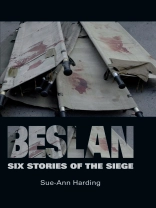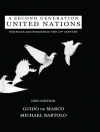This book investigates the reportage of the 2004 Beslan hostage-taking published by three very different Russian-language websites: RIA-Novosti, Kavkazcenter, and Caucasian Knot, tracking the ways in which these three sites constructed six different reports in response to what happened at Beslan, even as events were still taking place. By covering both Russian and English reports, the book also considers ways in which translation impacts on the reconstruction of these narratives. Working from the premises that narratives constitute reality and are fundamental to human agency, the book investigates material never before subjected to scholarly analysis in this depth, contributing to an understanding of Beslan in terms of its significance for Russia’s nation building, civil society and responses to terrorism. The book also reflects on the role of narratives in perpetuating or dissolving violent political conflict, a discussion relevant not just for Russia, but for other, seemingly intractable, conflicts across the world.
Spis treści
Introduction
1. Socio-narrative theory: narratives, text, narrators
2. RIA-Novosti: ‘No front line and an invisible enemy’
3. Kavkazcenter: ‘Mister Putin, you are a butcher’
4. Caucasian Knot: ‘I have five children in that school, do you understand?’
5. Translated narratives: a narrow gate
Conclusions, reflection and conflict dissolution
O autorze
Sue-Ann Harding is a Research Associate in Russian and East European Studies at the University of Manchester












